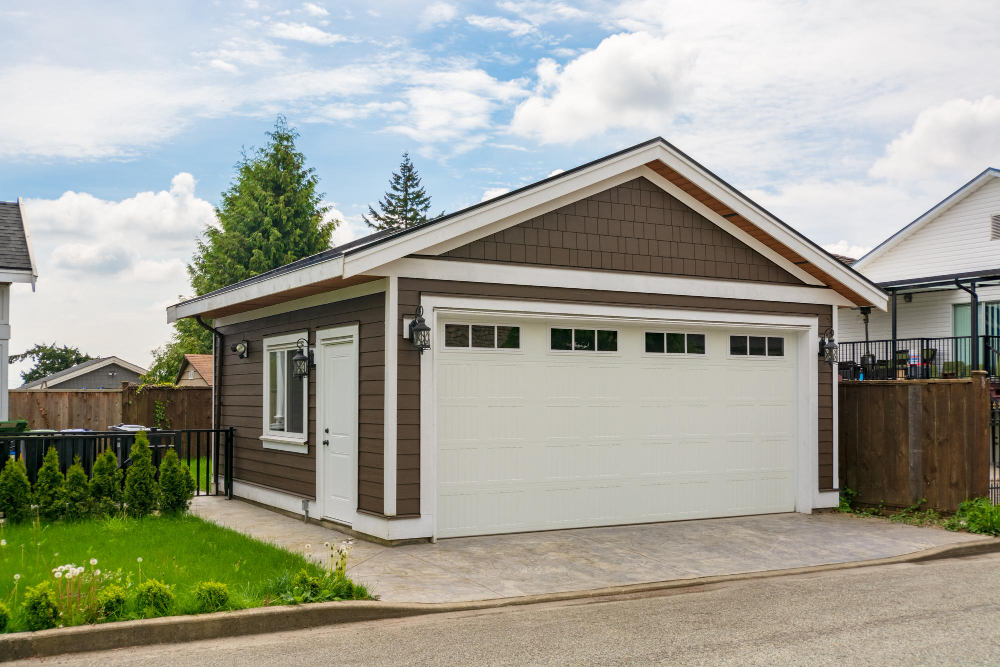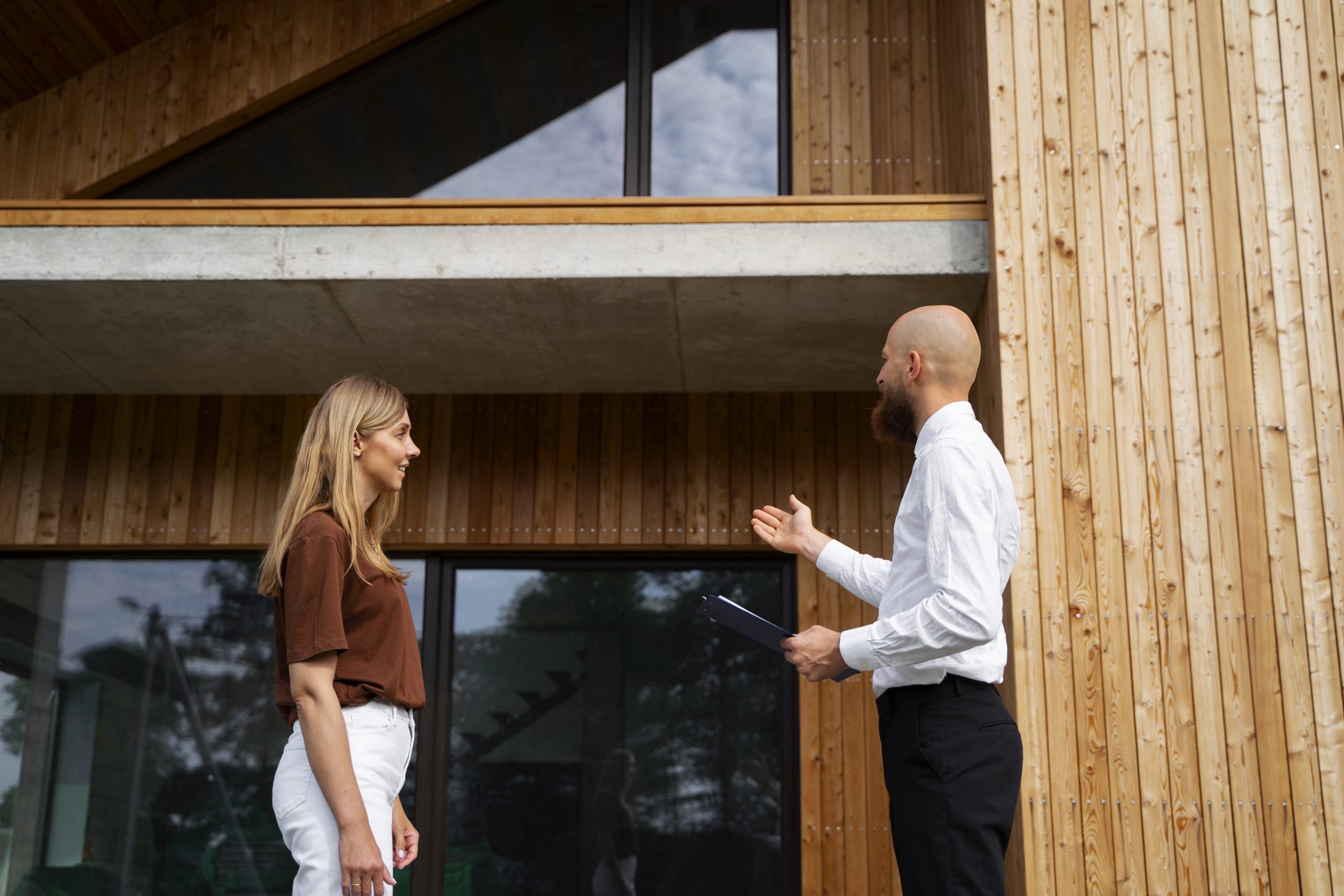A garage extension is one of the most practical ways to add space to your home without the high costs of moving or undertaking a full-scale renovation. Whether you’re looking to expand storage, create a hobby space, or even add a new bedroom above the garage, extending this part of your property can bring long-term value and functional benefits.
However, the question on most homeowners’ minds is simple: how much does a garage extension cost? The answer isn’t so simple, as garage extensions vary widely depending on your goals, property type, and location. In this guide, we’ll cover everything you need to know to confidently plan your project, from real-world cost examples to hidden charges and value-adding tips.
1. Factors Influencing Garage Extension Costs
No two garage extensions cost the same. The price of your project will depend on a mix of factors, and understanding these from the start can help you stay on budget and avoid delays.
1. Size of the Extension
Larger garages naturally cost more, but the cost per square metre can also change depending on whether you’re building out or adding a second storey. Single garages typically measure around 16m², while double garages are closer to 32m².
2. Type of Extension
Are you building a new structure, extending an existing one, or constructing above your current garage? Extensions above garages generally require stronger structural reinforcements, which can increase costs significantly.
3. Materials Used
From basic prefab kits to premium brick constructions, your choice of materials will make a big difference. For example, metal and wooden garages are cheaper upfront but may require more maintenance. Brick garages last longer and add more value but come at a higher price.
4. Labour and Location
Where you live affects labour costs. Builders in London and the South East charge more than those in the North or Midlands. Access to the site also impacts pricing. If the garage is hard to reach or materials must be moved manually, expect higher charges.
5. Foundation and Groundwork
Some projects need additional groundwork, especially if your land is sloped or needs excavation. This can add a few thousand pounds to your final bill.
6. Roof Design
A flat roof is cheaper and easier to build. A pitched roof, while more expensive, offers better insulation and the potential for a room above the garage.
7. Internal Features
If your garage is going to serve as more than storage, you’ll need to think about insulation, lighting, plumbing, and heating. These extras can raise the cost considerably but improve functionality.
2. UK Garage Extension Cost Breakdown
Understanding how much a garage extension might cost means looking at different styles, materials, and use cases. Below is a breakdown of typical prices in the UK as of 2025. These ranges give you a good benchmark when planning your budget.
Standard Garage Extension Costs:
| Garage Type | Estimated Cost Range | Notes |
| Wooden Prefab Garage | £2,000 to £6,000 | Basic, short lifespan, low security |
| Metal Prefab Garage | £2,500 to £6,500 | Stronger than wood, but limited insulation |
| Concrete Prefab Garage | £3,000 to £7,000 | Requires foundation, medium durability |
| Single Brick Garage (16m²) | £13,500 to £20,000 | Durable and high-quality |
| Double Brick Garage (32m²) | £24,000 to £35,000+ | Suitable for large vehicles or conversions |
| Garage with Pitched Roof | Additional £2,400 to £6,400 | Depends on the material and size |
Prefab garages are more affordable and quicker to install, but may not suit long-term needs. Brick garages take longer to build, cost more, and may require planning permission but significantly improve property value and usability.
Cost per Square Metre
If you’re planning a garage extension based on size, the average cost per square metre is:
- Basic prefab: £200 to £400 per m²
- Brick-built extension: £850 to £1,300 per m²
- Extension above garage: £1,250 to £3,000 per m²
Keep in mind that these are just base construction figures. Costs can increase with structural reinforcements, utilities, or premium finishes.
Building Above an Existing Garage
This is a popular choice for homeowners who want an extra bedroom, office, or studio without expanding the home’s footprint. However, this option comes with structural challenges, making it more expensive than building on flat ground.
| Extension Type Over Garage | Typical Cost Range |
| Budget Ensuite Over Single Garage | £20,000 to £26,000 |
| Mid-Range Extension with Ensuite | £27,000 to £33,000 |
| High-End Double Garage with Ensuite | £75,000 to £90,000 |
These estimates include shell construction only and exclude internal finishes like furniture, appliances, or decoration.
Other Considerations by Region
Labour and material prices vary across the UK. In London or the South East, you might pay up to 20% more than in the Midlands or the North due to higher demand and labour rates. Always get at least three local quotes to compare fairly.
3. Is a Garage Extension Worth It?
Investing in a garage extension can make a big difference to both your lifestyle and your property value. But is it always worth the money? Let’s break it down.
When Is It a Smart Investment?
A garage extension is worth considering if:
- You need secure storage for tools, bikes, or a second vehicle
- You want to convert the space into a gym, home office, utility room or guest room
- Your home lacks an organised space for hobbies or seasonal items
- You want to improve your property’s curb appeal and potential resale value
For example, converting a garage into a home office or annexe can boost functionality without sacrificing garden space or extending into main living areas. This is especially valuable for growing families or remote workers.
Adding Value to Your Home
Garage extensions, especially brick-built ones or those with added living space, can increase property value by 10 to 20% depending on location, quality of construction, and design.
Adding an extra bedroom over the garage is one of the highest value improvements you can make to a home. This kind of space appeals to families, makes good use of vertical space, and can often be done more affordably than a whole side or rear extension.
Garage Use Cases That Make a Difference
- Utility Room: A small extension for laundry appliances and storage
- Workshop or Studio: Great for creatives, DIYers, or remote workers
- Guest Bedroom with Ensuite: Adds comfort and potential for rental income
- Hobby Room or Home Gym: Adds lifestyle value that buyers appreciate
If your garage is currently underused, extending it or building above it can turn dead space into practical, income-boosting square footage.
4. Different Garage Extension Types Explained
Not all garage extensions are created equal. Your choice will depend on budget, purpose, existing layout, and whether you’re adding new space or converting what’s already there. Below is a breakdown of common garage extension types and how they compare.
1. Single Garage Extension
This is the most straightforward option and ideal if you want to store one car or create a compact storage area.
- Average Size: 16m²
- Cost: £13,500 to £20,000 (brick-built)
- Best for: General storage, tools, bikes, or one small vehicle
- Pros: Simple design, easier planning process
- Cons: Limited future conversion potential
2. Double Garage Extension
A double garage provides more space and future flexibility. It can store two vehicles or be converted into a room in the future.
- Average Size: 32m²
- Cost: £24,000 to £35,000+ (brick-built)
- Best for: Growing families, future conversion projects
- Pros: Versatile, adds substantial value
- Cons: Needs more land space and planning permission
3. Prefabricated Garage Extension
Prefab garages are made off-site and assembled quickly at your property. They’re cheaper but may not offer long-term durability.
- Materials: Wood, metal, or concrete panels
- Cost: £2,000 to £7,000 depending on material
- Best for: Temporary needs or tight budgets
- Pros: Quick install, low labour cost
- Cons: Lower lifespan, less customisation, reduced insulation
4. Garage with a Pitched Roof
Choosing a pitched roof over a flat one can add style and future use potential.
- Cost: Add £2,400 to £6,400 to your garage build
- Pros: Better drainage, matches existing roof, supports upstairs extensions
- Cons: More expensive and complex to build
Extension Over Garage
One of the most valuable options is that it adds a whole new room above your existing or new garage. Commonly used for a bedroom, study, or annexe.
- Cost Range: £18,000 to £90,000 depending on garage size and quality
- Best for: Adding living space without taking a garden room
- Pros: Excellent return on investment
- Cons: Requires strong foundations, more planning approval steps
6. Attached vs Detached Garage Extensions
- Attached Garages are built into the main home, offering direct access and easier utility connections.
- Pros: Convenient, adds more value, and offers better insulation options
- Cons: More complex planning and structural integration
- Detached Garages are separate from the home, typically at the side or back of the property.
- Pros: Easier to build, lower impact on existing structure
- Cons: May be less secure and harder to heat or power
Choosing the right type depends on your long-term goals. If you’re simply storing equipment, a prefab may suffice. But if you’re planning for resale value or additional living space, a double brick-built garage with the potential to extend above is the most future-proof option.
5. Hidden and Additional Costs to Consider
While construction is the main expense in a garage extension, many homeowners overlook hidden costs that can affect their final budget. Being aware of these from the beginning helps prevent overspending and last-minute surprises.
1. Foundations and Groundwork
Most garage extensions, especially brick or concrete builds, require a solid foundation. If the land is uneven, sloped, or filled with tree roots or pipes, additional groundwork might be needed.
- Estimated Cost: £1,000 to £3,000
- Tip: A site survey before building can reveal potential groundwork challenges.
2. Planning and Design Fees
Even if your extension falls under permitted development, you may need technical drawings and structural checks. Hiring a professional can help smooth this process.
- Architect/Designer: £500 to £2,000
- Structural Engineer: £400 to £800
Planning Application Fee (if needed): Around £230
3. Utilities and Internal Work
If you’re planning to use the space as a utility room, gym, office, or living space, you’ll likely need electrical wiring, lighting, insulation, and possibly plumbing.
| Feature | Typical Cost Range |
| Electrical wiring | £500 to £2,000 |
| Plumbing (e.g., ensuite) | £1,000 to £5,000 |
| Heating | £400 to £1,500 |
| Insulation | £800 to £2,000 |
4. Windows, Doors, and Finishes
Even simple garages need at least one door and one window. Costs go up if you’re looking for high-end finishes, French doors, or larger glazed areas.
| Item | Cost Range |
| Internal doors | £50 to £200 each |
| External doors | £300 to £600 each |
| Windows (uPVC) | £250 to £900 each |
| Garage door | £700 to £2,500 |
| Flooring | £7 to £70 per m² |
5. Waste Removal and Site Clean-up
Don’t forget to account for the removal of any old garage structures, debris, or waste created during the build.
- Skip Hire: £150 to £300
- Waste disposal: £100 to £500 depending on materials
- Garden restoration: £250 to £1,000 if paving or grass is damaged
Contingency Fund
Even the best plans can encounter unexpected issues, such as weather delays or discovering sub-par soil. A contingency fund of at least 10% of your total budget is strongly recommended.
These extra costs may seem small on their own, but together they can add several thousand pounds to your project. Knowing about them now allows you to build a more accurate and stress-free budget.
6. Planning Permission and Building Regulations
Planning permission and building regulations can make or break a garage extension project. Knowing whether your project qualifies as permitted development or needs approval will save you time and money.
When Is Planning Permission Required?
In many cases, building a garage or extending an existing one does not require full planning permission. This depends on the size and location of the garage, as well as local council rules. Your garage extension may fall under permitted development rights if it:
- Is no more than 4 metres high
- Covers less than half the total area of your property
- It is built at the side or rear of your home
- It is not being converted into a separate dwelling
- Does not extend beyond the front wall of the house
However, you will likely need permission if:
- Your home is in a conservation area, a listed building zone, or a new development
- You’re adding a room above the garage
- You’re building close to a boundary wall
- The structure affects a shared wall (party wall)
Always check with your local planning office to confirm your specific situation.
7. Building Regulations: What You Need to Comply With
Even if planning permission is not required, building regulations approval is almost always necessary.
These rules ensure your new structure is safe, energy-efficient, and structurally sound. Key areas covered include:
- Foundations and structural support
- Drainage and ventilation
- Electrical and plumbing safety
- Fire safety (especially for garage-to-room conversions)
- Insulation standards for walls, floors, and ceilings
If you’re converting a garage into a living space or adding a room above, you’ll need approval from Building Control, which may involve multiple inspections throughout the build.
The cost of building control applications typically ranges between £450 and £800, depending on the scope of the project.
What Is a Party Wall Agreement?
If your garage is built against a neighbour’s property, or you plan to extend near a boundary, you may need a party wall agreement. This legal document outlines how the work will affect the shared wall and confirms that your neighbour agrees to the changes.
- Cost: £700 to £1,500 if handled through a party wall surveyor
In short, skipping the planning or approval steps could result in fines, delays, or having to tear down the extension. Always seek advice early from your local authority or a qualified builder.
8. How Long Will the Project Take?
Garage extensions vary in complexity, and so does the timeline. The overall duration depends on the type of extension, weather, planning requirements, and the tradespeople involved. Let’s explore what to expect.
Estimated Timeframes by Project Type:
| Extension Type | Estimated Duration |
| Prefabricated garage | 3 days to 1 week |
| Single-storey brick garage | 2 to 4 weeks |
| Double garage (brick-built) | 3 to 6 weeks |
| Extension above the garage | 3 to 6 months |
Prefab garages are quickest to install since they come in kits and involve less groundwork. Brick extensions take longer due to foundations, blockwork, and roofing. Over-garage extensions take the most time due to structural assessments, planning permissions, and full fit-outs.
Typical Construction Phases
- Design and Planning: 2 to 5 weeks
- Includes surveys, drawings, permissions, and approvals
- Groundworks and Foundations: 3 to 10 days
- Can be longer if your site needs excavation or drainage changes
- Structure and Roofing: 1 to 3 weeks
- Includes walls, roof, doors, and windows
- Utilities and Interiors: 1 to 4 weeks
- Plumbing, electrics, insulation, heating, finishes
- Final Inspections and Clean-Up: Several days to 1 week
- Building control sign-offs and site clearance
What Can Delay a Garage Extension?
- Weather disruptions, especially for groundwork
- Planning permission hold-ups if applications are incomplete
- Changes in design after the build starts
- Labour shortages or overbooked contractors
- Supply chain issues for doors, windows, or roofing materials
Being organised from the start, having clear drawings, and choosing experienced professionals can help keep your project on schedule.
9. Impact on Home Value and Return on Investment
One of the biggest advantages of a garage extension is its potential to add value to your home. But how much return can you actually expect from your investment?
How Garage Extensions Boost Property Value
Depending on your location and the type of extension, a well-designed garage addition can increase your home’s market value by 10 to 20 per cent. This is especially true when:
- The extension adds a usable room (e.g. bedroom, office, ensuite)
- The finish matches the rest of your property
- The extension improves curb appeal or functionality
Buyers often appreciate added storage, secure parking, or bonus living areas — particularly in urban areas where space is limited.
Best Value-Adding Garage Extensions
Here’s a breakdown of which types tend to add the most value relative to their cost:
| Extension Type | Value-Add Potential | ROI Strength |
| Bedroom with Ensuite Over Garage | High | Excellent |
| Brick Double Garage | Moderate to High | Strong |
| Single Brick Garage | Moderate | Good |
| Metal or Wooden Prefab | Low | Low |
Adding a bedroom with an ensuite above the garage is one of the most profitable extensions, especially if your home only has two or three bedrooms. This new space can be used as a guest suite, rental room, or even a home office with a bathroom.
How to Maximise ROI
- Choose a design that matches your home’s current look
- Focus on high-quality construction over luxury finishes
- Keep the space flexible for future use (e.g. guest room or studio)
- Use professional tradespeople and get all proper approvals
- Ensure sound insulation, access, and lighting
10. Step-by-Step Budgeting Checklist
Budgeting properly for your garage extension is just as important as the design or build itself. A well-planned budget ensures you don’t overspend, miss key items, or encounter nasty surprises during construction.
Here’s a simple checklist to help guide your budgeting process from start to finish:
Garage Extension Budgeting Checklist
- Define Your Purpose
- Storage, parking, living space, office, bedroom, utility, etc.
- Helps determine layout and level of finish needed
- Measure Your Space
- Know your current garage size and how much room you have to extend
- Decide between single, double, or above-garage options
- Set Your Total Budget Range
- Include construction, materials, finishes, and extras
- Add 10% contingency for unexpected costs
- Decide on Materials
- Brick, metal, concrete, or wood?
- Consider insulation, durability, and aesthetic
- Choose Roofing Type
- Flat roof (lower cost) or pitched (adds future potential)
- Plan for Internal Features
- Will you need lighting, plumbing, heating, or windows?
- Check for Planning Permissions
- Speak to your local authority and apply if needed
- Get a Structural Survey
- Especially important for building above an existing garage
- Obtain Quotes
- Get at least 3 quotes from local, trusted builders
- Make sure quotes are detailed and include VAT
- Factor in Approvals and Fees
- Building control inspections
- Party wall agreements if needed
- Architect or engineer fees
- Don’t Forget the Finish
- Flooring, painting, fixtures, and final clean-up
- Review and Track Spending
- Monitor payments and changes to stay on track
Conclusion
So, how much does a garage extension cost? The answer depends on your goals, your home, and how far you’re willing to go with design, materials, and features.
Costs can range from £2,000 for a basic prefab unit to £90,000 for a fully integrated double garage with an ensuite above. But with careful planning, smart choices, and professional help, you can get incredible value from your investment.



